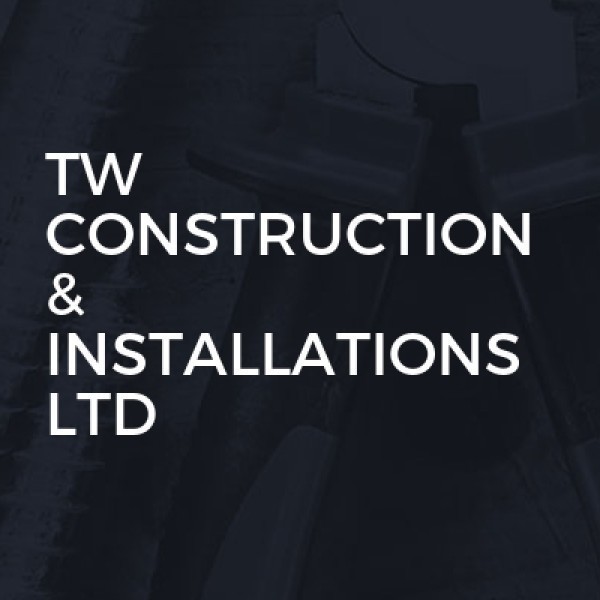Loft Conversions in Wilmslow
Welcome to TKO Kitchens & Construction LTD, your go-to experts for all things construction in Peel Green and Gr... read more »
Welcome to General Interiors, your go-to experts for builders, extension builders, property maintenance, bathroom installation, and renov... read more »
Welcome to Edge Construction Services LTD, your premier choice for builders, extension builders, electricians, and property maintenance e... read more »
Welcome to MH Developments NW LTD, your trusted partner for all building and renovation needs in Woodhouse Park and throughout Greater Ma... read more »
AK Electrics & Home Improvements is a trusted and reputable business based in Hadfield, proudly serving the Derbyshire a... read more »
Via Roofing Ltd: Your Trusted Tradespeople in Greater Manchester
Welcome to Via Roofing Ltd, a reputable Brunswi... read more »
Welcome to G4 Builders, your go-to experts for all your building needs in Newall Green and the Greater Manchester area. Our team of skill... read more »
Welcome to ILS Management Ltd, your trusted partner for all your building and renovation needs in New Moston and across Greater Mancheste... read more »
Tw Construction & Installations Ltd is a reputable and trusted business located in the heart of Denton, offering a compr... read more »
Welcome to Bond Developments, your trusted partner for all your construction needs in Backbower and the Greater Manchester area. As a pre... read more »
Next Gen Construction Ltd: Your Premier Tradespeople in Greater Manchester
Welcome to Next Gen Construction Ltd,... read more »
Welcome to Exquisite Manchester Ltd, your go-to solution for all tradespeople services in Congleton and throughout Cheshire. Wh... read more »
Welcome to Diamond Ridge Mcr Ltd, your trusted builders and renovation experts in Whalley Range, Greater Manchester. We are proud to offe... read more »
Welcome to Complete Carpentry and Construction Group Ltd, your go-to experts for all building and carpentry needs in Offerton Green and t... read more »
ASR Building Service UK Limited is a premier construction and renovation company based in the vibrant community of
Welcome to Kerikeri Ltd, your premier choice for building and renovation services in Hazel Grove and the Greater Manchester area. As a le... read more »
Welcome to Shirzad Builder, your premier choice for builders, extension builders, roofers, and loft conversion specialists in Levenshulme... read more »
Welcome to Araco Building Contractors Ltd, your trusted partner for all construction needs in Davenport and Greater Manchester.... read more »
Medhi Construction Ltd: Premier Tradespeople in Barlow Moor and Greater Manchester
Welcome to Medhi Construction... read more »
Welcome to MB Joinery Design Ltd, your premier choice for carpentry services in Haughton Green and across Greater Manchester. As seasoned... read more »
Search Loft Conversions in places nearby
Understanding Loft Conversions in Wilmslow
Loft conversions in Wilmslow have become a popular choice for homeowners looking to maximise their living space without the hassle of moving. With the charming town of Wilmslow offering a blend of urban convenience and rural beauty, it's no wonder residents are keen to enhance their homes. This article explores the ins and outs of loft conversions, providing a comprehensive guide for those considering this exciting home improvement project.
The Appeal of Loft Conversions
Loft conversions offer a unique opportunity to transform unused attic space into a functional area. Whether you need an extra bedroom, a home office, or a playroom, a loft conversion can provide the solution. In Wilmslow, where property prices are on the rise, converting a loft is often more cost-effective than purchasing a larger home.
Benefits of Loft Conversions
- Increased Property Value: A well-executed loft conversion can significantly boost your home's market value.
- Additional Living Space: Gain extra square footage without altering your home's footprint.
- Customisable Design: Tailor the space to meet your specific needs and preferences.
- Energy Efficiency: Modern conversions often include improved insulation, reducing energy costs.
Types of Loft Conversions
There are several types of loft conversions to consider, each with its own set of advantages. The choice largely depends on your budget, the existing roof structure, and your personal preferences.
Dormer Loft Conversions
Dormer conversions are the most common type, involving the extension of the existing roof to create additional headroom and floor space. This option is ideal for those seeking a straightforward solution that maximises space.
Mansard Loft Conversions
Mansard conversions involve altering the roof structure to create a flat roof with steeply sloping sides. This type of conversion is often used in terraced houses and offers a significant increase in space.
Hip-to-Gable Loft Conversions
For homes with a hipped roof, a hip-to-gable conversion extends the sloping side of the roof to create a vertical wall, providing more internal space. This option is popular in semi-detached and detached houses.
Velux Loft Conversions
Velux conversions, also known as roof light conversions, are the least invasive option. They involve installing windows into the existing roofline, making them a cost-effective choice for those with limited budgets.
Planning Permission and Building Regulations
Before embarking on a loft conversion in Wilmslow, it's crucial to understand the planning permission and building regulations involved. While some conversions fall under permitted development rights, others may require formal approval.
When is Planning Permission Required?
Planning permission is typically required if you plan to extend or alter the roof space beyond certain limits. Factors such as the height of the conversion, the type of property, and its location can influence the need for permission.
Building Regulations Compliance
Regardless of planning permission, all loft conversions must comply with building regulations. These regulations ensure the safety and structural integrity of the conversion, covering aspects such as fire safety, insulation, and access.
Choosing the Right Contractor
Selecting a reputable contractor is essential for a successful loft conversion. In Wilmslow, there are numerous experienced professionals who can guide you through the process from start to finish.
What to Look for in a Contractor
- Experience: Choose a contractor with a proven track record in loft conversions.
- References: Ask for references and view previous projects to assess quality.
- Insurance: Ensure the contractor has adequate insurance coverage.
- Transparent Pricing: Obtain detailed quotes and compare them carefully.
Design Considerations for Loft Conversions
Designing your loft conversion is an exciting part of the process. From layout to lighting, there are numerous elements to consider to ensure the space meets your needs.
Optimising Space and Layout
Careful planning is essential to make the most of your loft conversion. Consider the placement of furniture, storage solutions, and the flow of the space to create a functional and comfortable environment.
Lighting and Ventilation
Natural light and ventilation are crucial for creating a pleasant living space. Incorporate windows, skylights, and ventilation systems to enhance the comfort and appeal of your conversion.
Cost Considerations
The cost of a loft conversion in Wilmslow can vary significantly depending on the type of conversion, the size of the space, and the materials used. It's important to establish a budget and explore financing options if necessary.
Factors Affecting Cost
- Type of Conversion: More complex conversions, such as mansard or hip-to-gable, tend to be more expensive.
- Size of the Loft: Larger spaces require more materials and labour, increasing costs.
- Quality of Materials: High-end finishes and fixtures can add to the overall expense.
Financing Your Loft Conversion
Financing a loft conversion can be achieved through various means, including savings, home improvement loans, or remortgaging. It's essential to explore all options and choose the one that best suits your financial situation.
Home Improvement Loans
Many banks and financial institutions offer loans specifically for home improvements. These loans can provide the necessary funds to cover the cost of your loft conversion.
Remortgaging
Remortgaging involves replacing your existing mortgage with a new one, potentially releasing equity to fund your conversion. This option can be beneficial if you have significant equity in your home.
Common Challenges and Solutions
While loft conversions offer numerous benefits, they can also present challenges. Being aware of potential issues and their solutions can help ensure a smooth process.
Structural Challenges
Older homes may have structural limitations that require reinforcement. Consulting with a structural engineer can help address these concerns and ensure the safety of your conversion.
Access and Staircase Design
Creating access to the loft can be tricky, especially in homes with limited space. Innovative staircase designs can help overcome this challenge while maintaining aesthetics.
Environmental Considerations
Incorporating eco-friendly elements into your loft conversion can enhance its sustainability and reduce your carbon footprint.
Insulation and Energy Efficiency
Proper insulation is key to maintaining a comfortable temperature and reducing energy consumption. Consider using sustainable materials and energy-efficient systems in your conversion.
Renewable Energy Options
Installing solar panels or other renewable energy sources can further enhance the environmental benefits of your loft conversion.
Legal and Insurance Aspects
Understanding the legal and insurance aspects of a loft conversion is crucial to protect your investment and ensure compliance with regulations.
Party Wall Agreements
If your conversion affects a shared wall with a neighbour, a party wall agreement may be required. This legal document outlines the rights and responsibilities of both parties.
Insurance Coverage
Ensure your home insurance policy covers the loft conversion, including any potential damage during construction. It's advisable to inform your insurer of the changes to your property.
Frequently Asked Questions
- Do I need planning permission for a loft conversion in Wilmslow? It depends on the type of conversion and your property's location. Some conversions fall under permitted development rights.
- How long does a loft conversion take? The duration varies based on the complexity of the project, but most conversions take between 6 to 12 weeks.
- Can all lofts be converted? Not all lofts are suitable for conversion. Factors such as head height, roof structure, and access must be considered.
- Will a loft conversion add value to my home? Yes, a well-designed loft conversion can significantly increase your property's value.
- What is the cost of a loft conversion in Wilmslow? Costs vary depending on the type and size of the conversion, but typically range from £20,000 to £50,000.
- How can I ensure my loft conversion is energy efficient? Use high-quality insulation, energy-efficient windows, and consider renewable energy options.
Loft conversions in Wilmslow offer a fantastic opportunity to enhance your home, providing additional space and increasing property value. By understanding the process, choosing the right type of conversion, and working with experienced professionals, you can create a beautiful and functional space that meets your needs and complements your lifestyle.
Send a message
























